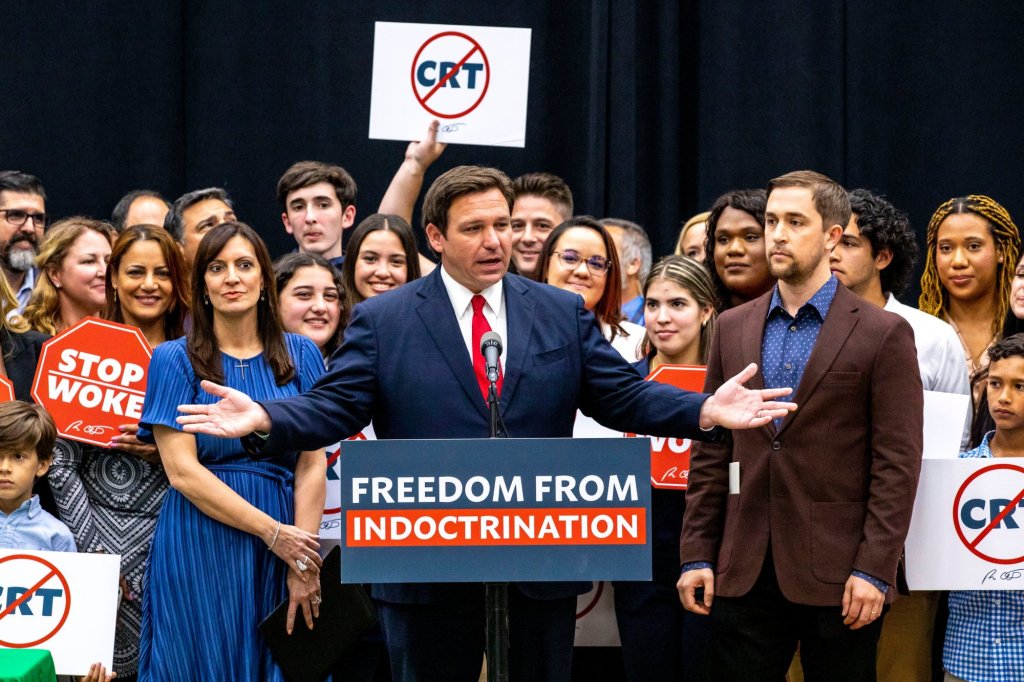A charter school operator bigfooting its way into Broward County classrooms may be able to force the school district to turn over rent-free space. But no one should be rolling out the welcome mat.
Miami-based Mater Academy has put Broward on notice that it plans on moving into 27 Broward school campuses, part of a bigger initiative to set up shop in dozens of public schools statewide.
This is about more than free space. Once a charter is in a public school, the Department of Education requires districts to pick up the tab for charter school expenses, including transportation, gyms, school safety, cafeterias, nursing and more.
Legislation allowing charter schools to take underused public school space reached the governor’s desk through a political sleight of hand, tucked inside Senate Bill 2510, a budget-related bill. And underused school space is in abundance in Broward County.
Political connections
There’s something deeply cynical about Florida charter schools siphoning students from public schools, then rapaciously demanding to set up shop in the same schools’ emptied classrooms.
But politically connected companies worked behind the scenes in Tallahassee to secure this new arrangement, independent reporter Jason Garcia revealed. The result is a boon to multimillion-dollar private education businesses and a slap in the face to taxpayers who pay to enrich education, not corporations.
Lawmakers first authorized charter schools in the 1990s, hoping to develop new teaching methods that could be shared with public schools.
Funded by taxpayers, the schools are nonprofits, but the businesses running them aren’t. Today, many schools are lucrative revenue streams for those businesses. Among them is Academica, a Miami-based powerhouse reaping millions from deals to operate charter schools, including Mater Academy.
Academica and other companies showered lawmakers’ with more than $13 million in campaign contributions beginning in 1998, Integrity Florida found.
Charter school interests spent millions more on lobbyists. But charters have more than money. They have political friends, too.
Empire-building with our money
The original 2017 “Schools of Hope” law provided millions in incentives to charter schools. It was spearheaded by former state Education Commissioner Manny Diaz when he was a Miami-Dade state lawmaker while also drawing a paycheck from a charter college.
New College president Richard Corcoran pushed for charter school expansion as House speaker. His wife founded a charter school, and his brother was a charter school lobbyist. And U.S. Rep Byron Donalds, a frontrunner in the governor’s race, is married to charter school businesswoman Erika Donalds, whose income from her charter school company was not fully disclosed for months.
Garcia reported that this year’s charter legislation was influenced, if not written, by lobbyists for billionaire donor and charter school backer Ken Griffin and New York’s Success Academy charter school.
But this legislation does much more than allow charter schools to take over parts of public schools.
It allows charter schools to drop certain troublesome students, as Success Academy was criticized for doing in New York. Keeping only high achievers can create a better overall academic ranking. Schools of Hope government money is available to charter school chains that operate near “persistently low performing” public schools.
The new law broadens that definition, creating opportunities for more charters to sweep in.
Florida DOE board Vice Chair Esther Byrd isn’t swayed by opponents of charter expansion, or the relocation into public schools. “Schools of Hope wouldn’t be necessary if our public school system had done its job along the way,” she told a critic.
In fact, Schools of Hope would not be necessary if a succession of governors and legislators had done their jobs. Siphoning money from public schools to pay big businesses running charter schools, for instance, might not have been necessary if charter schools had been held to their mission of sharing innovative educational practices with public schools instead of trying to supplant them.
Instead, Tallahassee has for years washed its hands of the hard work of real reform in favor of handing off public education to private interests.
It is done under the banner of parental rights. But allowing charter schools to muscle into public schools on the taxpayers’ dime is not the work of legislators expanding choice. It’s one more example of politicians abdicating responsibility.
The Sun Sentinel Editorial Board consists of Opinion Editor Steve Bousquet, Deputy Opinion Editor Dan Sweeney, editorial writers Pat Beall and Martin Dyckman, and Executive Editor Gretchen Day-Bryant. To contact us, email at letters@sun-sentinel.com.

